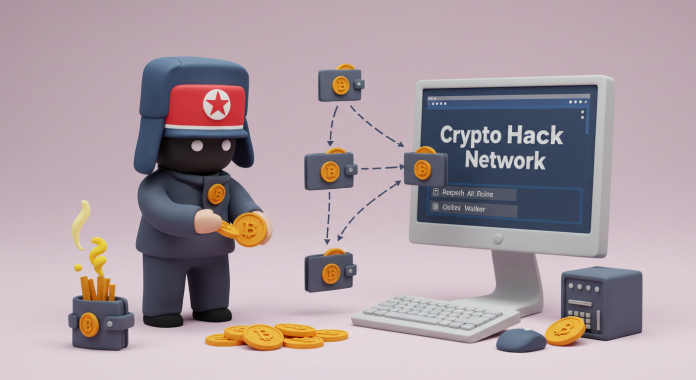
North Korea is reportedly behind 70% of all global cryptocurrency hacking damage, sparking widespread alarm. According to a recent report by U.S.-based blockchain analytics firm Chainalysis, out of approximately $1.7 billion in worldwide crypto hacking losses recorded between 2024 and 2025, an estimated $1.2 billion was attributed to North Korean hacker groups.
At the center of these operations is the Lazarus Group, which receives state backing to carry out phishing, software vulnerability exploitation, and DeFi smart contract attacks to steal large sums. The stolen funds are laundered through mixers and dozens of intermediary wallets, making them difficult to trace.
The report stated that Lazarus secured over $600 million in hacks in just the first half of this year alone, accounting for nearly half of all crypto hacking losses. Chainalysis commented, “North Korea has systematized cryptocurrency hacking as a primary foreign currency acquisition strategy.”
Such hacking campaigns are viewed as a serious security threat by the international community. A UN Security Council expert panel also reported that North Korean hacker networks are funding the country’s nuclear and missile programs through cryptocurrency theft. The U.S. Treasury Department has placed North Korean hacking networks on its sanctions list and announced plans to tighten regulations on mixers used for laundering these funds.
Experts warn, “North Korea’s crypto hacking is a digital tactic to circumvent traditional financial sanctions,” stressing that exchanges and DeFi protocols must strengthen their security. In response, some global exchanges have introduced withdrawal delays, multi-factor authentication, and enhanced suspicious transaction monitoring systems to counter these threats.
Chainalysis concluded, “As the cryptocurrency market grows, North Korea’s cyberattacks will also evolve,” highlighting that international cooperation and real-time information sharing are essential. This report has once again underscored the vulnerabilities and regulatory gaps in the digital asset ecosystem.






